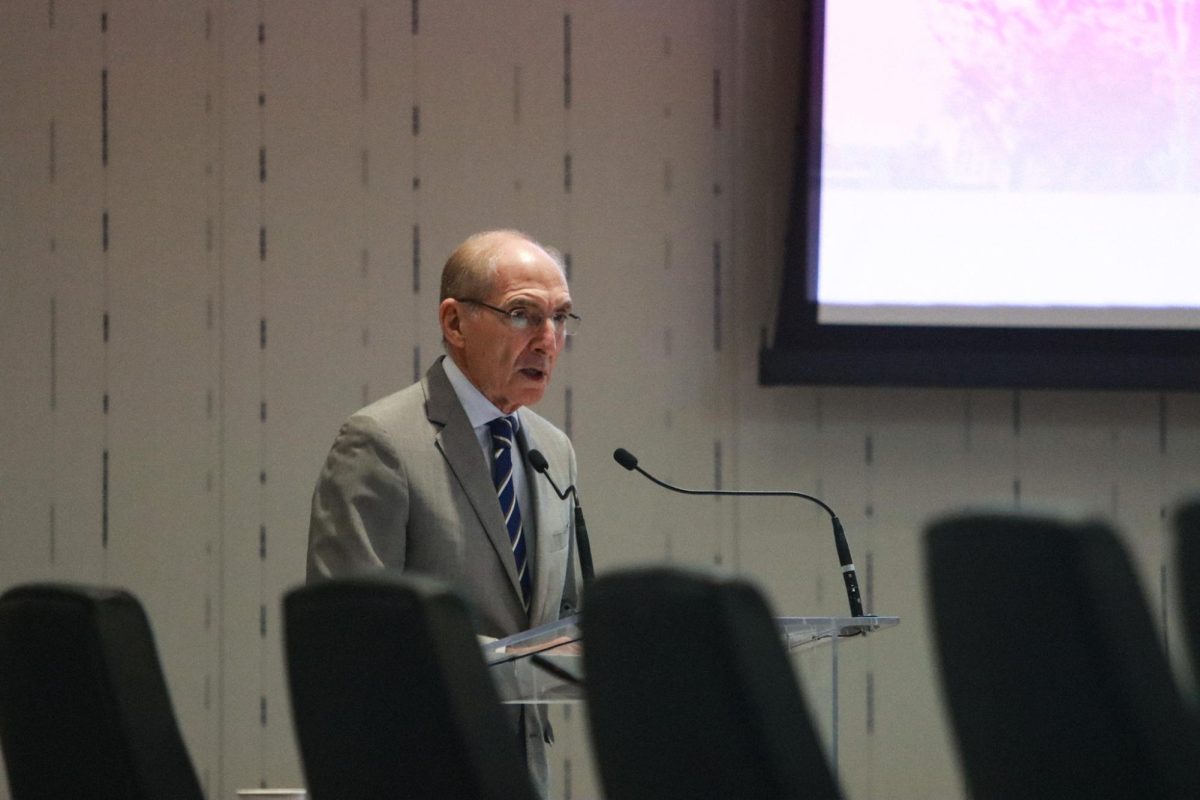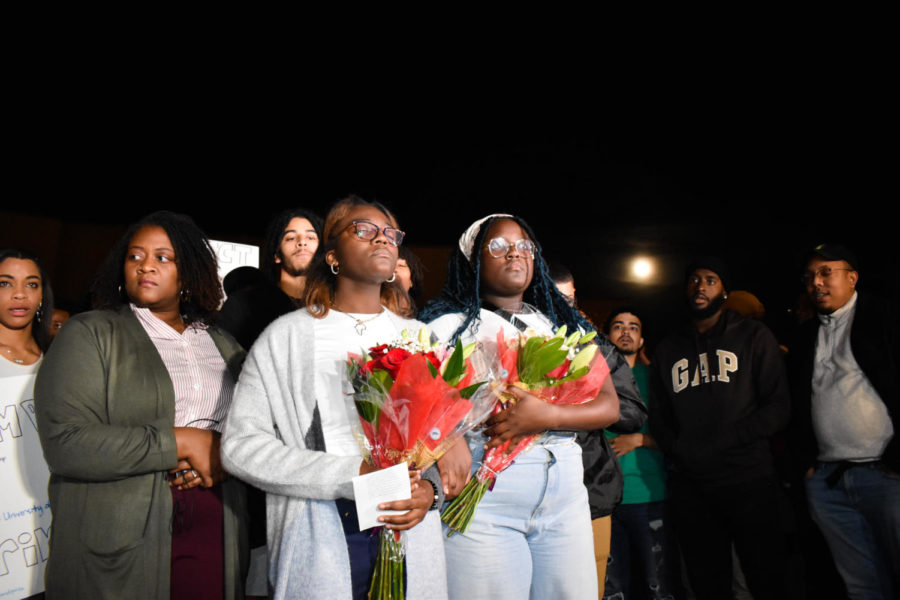Injustice must inspire action
Kylah Spring and Kansas Perry stand with flowers at the March Against Racism on Monday, Nov. 7, 2022, at the University of Kentucky in Lexington, Kentucky. Photo by Abbey Cutrer | Kentucky Kernel
November 14, 2022
On Nov. 7, hours after Sophia Rosing assaulted and verbally attacked Kylah Spring, UK students marched on campus in support of her, chanting the phrase “Protect Black Women” and carrying posters with various slogans describing the shared outrage many in the UK community have felt in the aftermath of this horrific act of hate.
However, when it comes to the phrase “Protect Black Women,” how are we protected in a society that berates, criticizes and looks at us as angry, dramatic and as the enemy in many ways? Even more-so, how are we protected in a country with a history of not showing up for Black women in the past? The answer to this question lies in the complicated nature of the incident that took place this past Sunday.
Black women know that no one will protect us but ourselves. There are so many ways in which the incident on Sunday could have played out. And Spring acted amazingly under the threat of violence, racism and under the eyes of those who were watching the incident unfold. Her Black female counterparts who were also in attendance handled themselves with dignity and restraint, even when they did not have to.
It is hard to not retaliate when someone is standing in front of you and attacking everything you stand for and everything your identity encapsulates. If Spring had retaliated, the outcome of the situation would have been entirely different. Our white counterparts do not have to consider the impact of their actions on the rest of their lives or the lives of those around them.
These are things that Black women must consider: the outcomes of our actions, even in situations where our livelihoods and identities are being threatened.
We routinely must advocate for our needs and voices to be met and heard and in many instances instead of listening to our struggles we are cast aside, labeled as Black and angry and our needs aren’t met.
In regard to Kylah Spring and her voice being heard, on Nov. 7, Spring was given the platform, the love and the surrounding community of Black girlhood: her mother, her sister, and her friends and family to back her voice. And this is not to exclude the Black men in attendance who too stood with Spring in support, love and encouragement. But the struggles that Black women face in the movement toward equity and equality, have routinely been outshined by the men who are seen as the face of this fight.
Aside from Spring’s powerful speech and unapologetic way in which she talked about the incident and the accountability Rosing will be destined to face, I couldn’t help but hone in on Spring’s tears as she spoke. They were silent but noticeable and a reminder that Spring is a freshman, in her first year of college. She is a young Black woman who had a horrible incident with a fellow student, and it will forever stick with her.
But Spring is more than what happened to her. I am always in awe and admiration of that power Black women hold to let things roll off our back and continue with our day. However, in this instance, Spring let the incident roll off her back and into the palm of her hands, where she took control to the best of her ability and handled the incident on Sunday with grace. And by standing in front of the public, addressing the incident for herself and her peers, I think she was able to take back her power and let the world know that despite this incident she will not let it define her, follow her or stop her from continuing to live her life. As Spring said at the end of her speech, “When they go low, we go high. Continue to address this situation with grace and humility.”
Don’t let this story die out. This is about more than Rosing being banned from the UK campus like she was on Wednesday; this is about more than the incident on Sunday. It’s about the fact that our campus has created a place in which racists are complicit and comfortable to spew hatred. Drunk or not, Rosing always had these thoughts deep down and felt perfectly comfortable spreading her hate speech around the UK campus on that Sunday night.
Rosing wasn’t thinking of the consequences of her actions that night because she probably felt as though she would face none. And although UK has officially banned Rosing from campus and prohibited her enrollment for next school year, if there was no video evidence of this incident would the outcome have been the same?
And even then, the university administration let her make the decision to withdraw first instead – which in the end doesn’t seem like much of a punishment. I wish her expulsion was immediate, but it seems as though racist remarks are not grounds for that at this university.





























































































































































